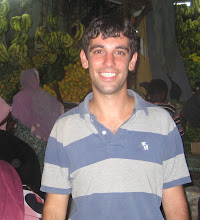In the weeks prior to my departure, I heard the question a thousand times: “So why Guatemala and Sierra Leone?” And while the thirty second answer might not have actually satisfied anyone, here I can try to explain my goals a bit more thoroughly (and perhaps make sure I understand the objectives myself!).
First, a bit of an introduction from one of the grant proposals I wrote for the work: Though the cultures differ dramatically between these countries, both are emerging from long and brutal civil conflicts with great potential for growth. Guatemala and Sierra Leone also both have strong traditions of social networks that have strongly impacted local development. This summer I will conduct research for my senior theses, analyzing village social capital—the social networks and cultural norms, trust, and values present in an area—seeking to understand both how dynamic relationships form and change for my anthropology thesis and how these relationships impact micro-level economic development for my public policy thesis.
This research is a capstone to my varied travel and internship experiences at Duke. My past two summers and my semester in Uganda have unequivocally shown me the importance of social structures, relationships, and networks. Whether homeless in Cleveland, Mississippi or a subsistence farmer in Ben Tre, Vietnam or Busitema, Uganda, one’s social connections play a huge role in shaping one’s interactions with the local and global economy.
And to explain that a bit: After years of (bad) classroom Spanish and amazing tales of adventure from friends, I’ve really wanted to visit Latin America. Now, with Duke paying, I can! Fair Trade (or “comercio justo”) coffee cooperatives have achieved notable success in Guatemala, allowing mostly small-scale farmers to access international markets and receive high prices for their crops. For the first three weeks in Guatemala, I hope to take a close look at these cooperatives; I want to know what makes the groups successful, how NGOs have helped cooperatives to succeed, what are the continued difficulties, and if and how this model can be applied outside of Fair Trade’s niche market. I’ve studied the demand side of the process with a semester of research on fair trade consumption, but this will be a chance to learn much more directly about the producer side of the equation. My Spanish is a bit rusty—and was never particularly spectacular—so I am going to spend the first week reviewing at a language school in the Western Highlands. I’ve heard amazing things about volcanoes, Lake Aitlan high in the mountains, and friendly people, so I’m definitely excited to start the summer in Central America.
The plan is to spend Memorial Day at home in Wisconsin before heading back to Africa—this time on the other side of the continent in Sierra Leone. Like most other people, before beginning my research, my only impressions of Sierra Leone were based on headlines from the bloody Civil War, and recently the movie Blood Diamond. It’s probably a bad sign when Leonardo DiCaprio’s portrayals represent most of one’s knowledge of anything, but the more I’ve read, the more intriguing both the past and present of the country have become. I look forward to sharing more as I see and learn, but to summarize my project a bit, I’ll be conducting a household level survey to attempt to discover the connections (if any) between social capital and the way families market their produce. I’ve spent almost the entire semester developing the survey, working with several public policy professors; I am trying to get at a concept that is rather new—how individual connections and village levels of trust and cooperation can combine and affect individual households. The goal is to visit at least three villages and speak with at least thirty families in each village. More on this later…
I’ll also be in Sierra Leone for the country’s first independently run elections since the 1997 conclusion of the Civil War, with the potential for the first peaceful transfer of presidential authority. Ranking 2nd to last on the United Nations Development Committee’s index of human development, much of the nation still lacks basic infrastructure, including electricity, running water, telephone lines, and roads. To further complicate things, I’ll be in the country smack in the middle of the monsoon season, where roads can be “impassable.” Whatever happens, it’ll be an adventure!
And finally, the summer will conclude with a week in Uganda. I’m hoping to apply for a Fulbright Fellowship next year, so I want to work on the application. More than that, though, the week will offer a chance to visit all my friends—many SIT alums are returning for the entire summer, and from SIT program staff to my homestay family to all my friends in the slum, I cannot wait to see everyone again! I’ll be arriving back at Duke on August 13th, just in time for my 21st birthday the following day.
Friday, May 11, 2007
Subscribe to:
Post Comments (Atom)

No comments:
Post a Comment